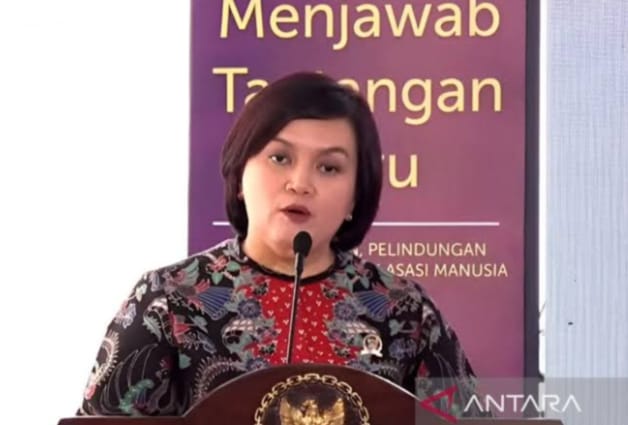On Wednesday 7/8, the Civil Society Coalition for Security Reform conducted a hearing with the National Human Rights Commissioner(s) on government revision of the Armed Forces and Police Laws. The Coalition presented its review and opinions regarding the discussion being held the President and the Parliament regarding the Armed Forces and Police Laws, which, in the Coalition’s view, infringed on the established procedure for law preparation, and on the principles of human rights and democracy.
During the hearing, the Coalition pointed to a number of issues, starting from the initial stage of law preparation up to the problems in the content of the laws. During planning and preparation, for example, the government tended to rush and ignore meaningful public participation, which defied the basic principles of democracy. Lack of transparency in the discussion and in participation were clear indication of government’s ignorance of people’s aspiration.
Moreover, the Coalition believed that the Police Law was prepared not to protect people, but to protect the people in power. The Coalition saw significant issues in many of the law’s stipulations, as well as overlaps and limitation on civilian freedom. As an example, Article 14 point (1) b of the Police Law stated that the Police had the task of coaching, monitoring and securing cyber space. This article risked being used as justification to monitor and target citizens who were critical of government policies. Misue of power potentially infringed on human rights, suchas freedom of expression.
Then, the broadening power of the security intelligence may potentially worsen intelligence problems. If one looked at article 16A and 16B point (2) which pointed to the Police power to conduct early detection of issues which might potentially be threats to “national interests,” this was problematic because the term “national interests” in the law was broad and had multi-interpretations. This potentially provide “ample justification” for monitoring of citizens moves that were critical of government by using the “national interests” justification.
With regards to the Armed Forces Law, the Coalition believed that it potentially provided vast space for the active Indonesian military personnel to occupy and to dominate strategic positions within the ministries/agencies through presidential discretion. This constituted a serious threat to democracy and civil supremacy, threatened to create new risks or problems – i.e. in public policy, this may encourage security-based approach, stronger military say and higher priority for national security than human rights. This may lead to repressive acts against civil societies.
The Coalition also presented its response to the idea of the military doing business. The Coalition believed that the idea showed a step backward and betrayed the spirit of the Armed Forces reform. The military was there to focus on its main role and function to defend the country and to be prepared for war, not for business. The past history of the New Order showed how destructive it was for the military to have its hands on business and politics – a definite regression which must be avoided in order to maintain the integrity and progress of democracy.
Tempo.com has indicated that the government and parliament would continue discussion on the revision of the laws despite criticisms of human rights activists. For his part the Indonesian President, Djokowi has sent a letter to the Parliament in Senayan. The Parliament, on its part, had agreed to that the revision of the Armed Forces Law would be its initiative. Yet, the discussion between the two (President and Parliament) had not even started.
The head of the Parliament Legislative Body, Supratman Andi Agtas stated that the Parliament had not decided any plan to continue discussion on the Armed Forces Law. He suggested further that no date had been set to discuss the law.
The Legislative Body was still waiting for the government’s problem inventory. “In the absence of this problem investory, then the Legislative Body could not prepare any schedule,” he said on 16 July 2024. (Ast)












